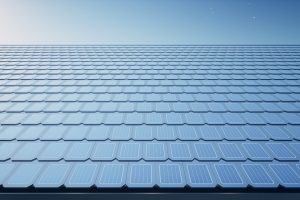
When installing rack-mounted solar panels, home and business owners have the choice between mounting their solar array on the roof or on the ground. Roof-mounted panels are popular because of their convenience, the space they save, and their lower installation costs. Ground-mounted systems, on the other hand, require less maintenance over time. If a home or business has a large enough plot of land to install a ground-mounted array, which is the better option to go for? Consider the following factors:
1. Optimal Solar Batteries
Ground-mounted systems have more optimal solar batteries than rooftop systems do. Usually, solar arrays have to be a specific size to provide sufficient power for the home or business. A ground-mounted system has an array of solar panels placed throughout a large land area. This allows the solar panels to collect sunlight from different angles, so the width of the display can be smaller than that of a roof-mounted system and still provide adequate power.
Therefore, a ground-mounted system has fewer solar batteries than a roof-mounted system and more optimal batteries than a rooftop system. Also, because the batteries are located with the panels, they have minimal exposure to extreme hot and cold environments. Properly installed ground-mounted systems are more temperature stable than rooftop systems and will last longer.
2. Lithium vs. Lead-Acid Batteries
There are two types of batteries commonly used in solar systems: lithium and lead-acid. Lithium batteries have a higher energy density than lead-acid. Lead-acid batteries have been around for more than 100 years, but their life span is limited because they can’t be recharged. A solar panel array is like a battery that needs to charge and discharge every day or so. If the battery isn’t being charged, it won’t work as well as if it were charged up. One of the most significant benefits of lithium batteries is that they can be recharged indefinitely because they do not oxidize when exposed to air (like lead-acid batteries).
This makes lithium batteries a better choice than lead-acid when the solar panels are not connected to the grid and have to store power in batteries. Lithium battery costs are more than twice that of lead-acid, but they last more than twice as long. A ground-mounted system will typically use fewer lithium batteries than a rooftop system because ground-mounted systems are not interconnected with the power grid and do not have to store power in large quantities for later use.
3. Backup Batteries for Grid-Connected Systems
A common misconception is that ground-mounted systems need to be grid-connected to draw power from the grid in case of a blackout. In reality, grid-connected solar panels are often more expensive than non-grid solar panels because of their maintenance needs and failure risks. If a large portion of the system were to fail for some reason, it would have to be replaced, not just repaired.
Most batteries can be shut down if they are not being used by an inverter (a piece of equipment that converts power), but they will keep working if some electricity is being used on them. However, lithium batteries should never be shut down because they could overheat and become damaged by doing so.
4. Optimal Solar Panel Mounts
Ground-mounted solar panels are generally mounted on metal frames bolted onto the ground. A certified structural engineer should design these frames to provide the correct grounding for the wiring and contain good insulators for lighting issues. This can save a lot of money on installation costs.
Rooftop solar panel mounts vary widely depending on what type of roof they’re installed on, making it hard to generalize about them. Panels installed on flat roofs don’t usually need any support because roofs have some natural give in them to support their weight.
Bottom Line
Ground-mounted solar panels are better for many reasons. They’re more cost-effective, can last longer, and have a lower maintenance environment. Compared to rooftop systems, ground-mounted systems are easier to install for your home or business, and the savings per year are substantial. Additionally, if ground-mounted panels become damaged in any way they don’t pose as much of a fire hazard as rooftop panels do because they’re not connected to power lines which electricity typically travels through.
https://mydividedsky.com/ground-mounted-vs-roof-mounted-solar-which-should-you-choose/

No comments:
Post a Comment